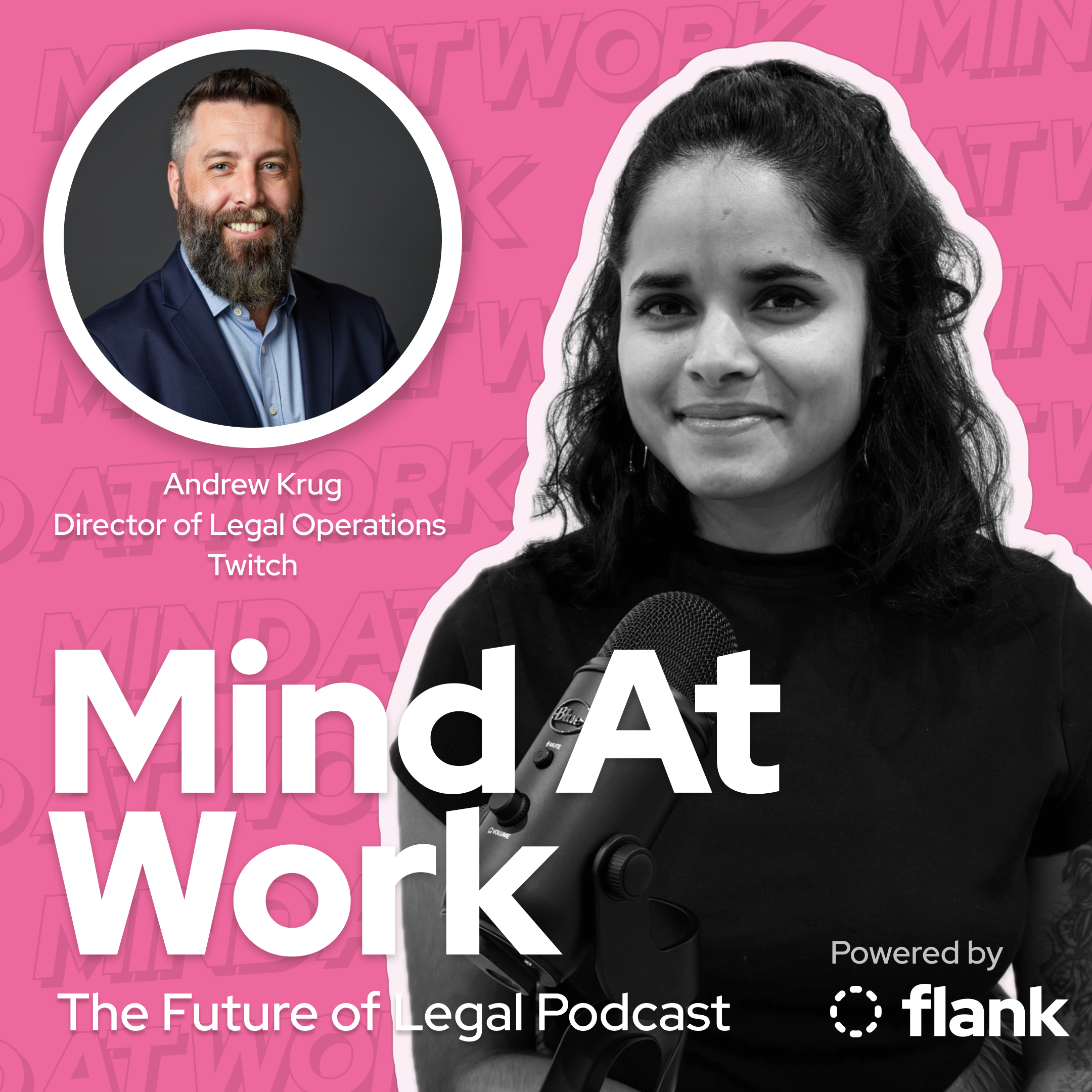AI, Automation & Agile Innovation: Andrew Krug on Legal Ops at Twitch
How do you bring an engineering mindset to legal ops? Andrew Krug, Head of Legal Ops at Twitch, shares how AI, automation, and agile thinking are transforming how legal teams work - helping them prioritise smarter, move faster, and stay ahead of risk. Read on to find out.

Legal operations is undergoing a transformation. Some thought leaders in the space have even hailed it as Legal Operations 3.0 in the making. As AI advances, automation streamlines workflows, and businesses demand greater efficiency from their legal teams, the role of legal operations is shifting. Many in-house legal teams are still grappling with how to implement these changes effectively.
At Twitch, Andrew Krug is approaching the challenge with a distinct perspective—one shaped by his background in IT, product management, and defense research. His experience outside of legal has given him a problem-solving mindset that is now driving innovation in legal ops. In this episode of Mind At Work, a Flank podcast, I sit down with Andrew and quiz him about his approach to effective legal ops, his people-centred approach to problem solving, his vision for automation in enterprise and much more.

Applying an Engineering Mindset to Legal Ops
Andrew’s approach at Twitch centres on bringing an engineering mindset to legal operations. Traditional legal functions are often structured around rigid, sequential processes, but in a fast-moving business environment, that approach creates bottlenecks. By applying agile methodologies—borrowed from software development—Andrew has been able to embed legal ops more seamlessly into Twitch’s broader business and product teams. One of the most significant shifts he has introduced is initiative planning, a proactive approach to identifying legal and compliance risks early in the product development process. Instead of legal being brought in late, often to fix issues under time pressure, this model integrates legal considerations from the outset, ensuring compliance is built into the company’s workflows rather than being an afterthought.
Andrew's journey into Legal Ops.
Prioritisation: Solving the "Everything is Urgent" Problem
Prioritisation has also been a key focus for Andrew’s team. Many in-house legal teams struggle with balancing competing demands, as internal clients often view their issues as urgent and critical. To address this, Andrew has implemented a structured prioritisation framework that assigns weighted scores to legal tasks based on urgency, business impact, regulatory risk, and strategic importance. This quantitative approach allows the legal team to align their work with the company’s broader objectives rather than simply reacting to incoming requests. At Twitch, they track everything using Jira, a platform traditionally used by engineering teams, which allows legal to integrate more effectively with the company’s existing workflow management systems. By adopting these tools and processes, legal operations at Twitch has become more transparent, predictable, and aligned with the needs of the business.
AI in Legal Ops: From Automation to True Collaboration
The role of AI in legal operations is evolving rapidly. While many still see AI as a tool for efficiency, Andrew Krug believes it will become a true collaborator in legal decision-making. At Twitch, tech is already being used for matter value estimation, contract lifecycle management, and compliance monitoring, but its potential goes far beyond automation.
One of the biggest advantages AI brings is precision in prioritisation. Legal teams often operate under significant resource constraints, managing high-stakes work across multiple business functions. AI can help by analysing historical data, identifying patterns, and providing insights that allow legal teams to make better-informed decisions. Instead of just automating individual tasks, AI can enhance the strategic side of legal work—helping teams assess risk, allocate resources, and anticipate challenges before they arise.
Andrew also sees AI transforming workflow management. At Twitch, legal teams track their work using Jira, a tool originally built for engineering teams. AI could further enhance this by proactively flagging legal issues within engineering workflows, ensuring compliance is considered at the earliest stages of product development. Rather than legal teams chasing down potential risks, AI could surface them in real-time, embedding legal expertise directly into the business.
For legal ops professionals, this shift is more than just about efficiency. It’s about enabling lawyers to operate at a higher level. As AI capabilities advance, legal teams that embrace it will be able to shift from reactive problem-solving to proactive strategic leadership. The next era of legal work won’t just be about doing more with less—it will be about working smarter, faster, and with greater impact.
The evolution of Legal.
What Comes Next for Legal Ops?
For in-house legal teams looking to prepare for this transformation, Andrew emphasises the importance of curiosity and adaptability. AI and automation are no longer distant concepts—they are active forces reshaping legal work today. Legal teams that resist these changes risk being left behind, while those that engage with new technologies and experiment with data-driven workflows will be best positioned for the future. Legal operations is no longer just about process management; it is becoming a critical function for enabling business growth and innovation.
"Resistance is futile."
Andrew’s work at Twitch offers a clear example of how legal teams can rethink their approach to operations, using AI, automation, and agile principles to build a more efficient, forward-thinking legal function. As businesses continue to demand more from their legal teams, these strategies will only become more essential. The next generation of legal operations will not just support the business—they will be fully embedded within it, driving strategic value in entirely new ways.
🎧 You can listen to my full conversation with Andrew Krug on Mind at Work here.
Let me know your thoughts—how is AI and automation shaping your legal team’s strategy? Are you experimenting with agile in legal ops? I’d love to hear how you're tackling these challenges. Drop me a note.
Curious about how Flank can help your legal team become AI-empowered? Book a call with our team today to find out.